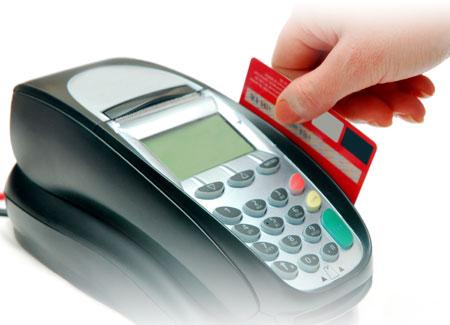 The first thing that we do here at UniBul when we receive a qualified merchant account inquiry from a U.S.-based business is to decide whether the applicant should be placed with a domestic acquiring bank or with an offshore one. Our preference is to find a domestic solution, whenever possible, and that is what we initially focus our efforts on. Only if we cannot find one, we look for offshore options.
The first thing that we do here at UniBul when we receive a qualified merchant account inquiry from a U.S.-based business is to decide whether the applicant should be placed with a domestic acquiring bank or with an offshore one. Our preference is to find a domestic solution, whenever possible, and that is what we initially focus our efforts on. Only if we cannot find one, we look for offshore options.
But, you may ask, why would a merchant that was turned down by a U.S.-based acquiring bank be deemed acceptable by, say, a European acquirer? Aren’t all acquiring banks subject to the same Visa and MasterCard requirements, wherever they may be located? And how is a domestic merchant account different from an offshore-based one? Well, as these are some of the most frequently asked questions we have to answer, we thought we’d help our cause by answering them in a blog post, so in future we can simply refer merchants to it.
A Divided World
So why would a merchant be approved by an acquirer in Europe, but not by one in the U.S.? Well, the primary reason is that underwriters in different parts of the world are required to comply with different guidelines. Both Visa and MasterCard have segmented their global operations into several regions and each of these regions sets out its own rules. Below, for example, you can see a map of Visa’s regions of operation, showing their share of the brand’s global processing volume.
Such global segmentation means that each of these regions is free to decide whether or not its member banks can underwrite a given industry type and under what conditions. So a line of business that would be off limits for acquirers in the U.S. may be just fine in Europe or Asia. Moreover, interchange rates may also vary from one region to another and you will find, for example, that European costs are lower than the ones in the U.S.

Offshore vs. Domestic Merchant Account
The optimal credit card processing option for a U.S.-based business would be a domestic merchant account, that is if it could get it. Here is why:
- Application process. Setting up a domestic merchant account is a much more straightforward process. You are asked to supply much less paperwork and when you do, the underwriting review is completed much more quickly. Whereas a U.S.-based underwriter would give you its decision within a couple of days or so (no longer than a week), an offshore one may well take several weeks to do so (many of them would tell you that they work more quickly, but you will inevitably find that this is not the case).
- Offshore incorporation. Often, though by no means always, an offshore acquirer will ask you to incorporate in its own jurisdiction, even though your business is already incorporated in the U.S. Usually, the acquirer will handle the whole process, but you would still have to pay the registration fees and other expenses, which can range between $1,000-$2,500 (I guess it is possible for acquirers to charge more, but I haven’t seen it).
- Pricing terms. Offshore acquirers charge much higher credit card processing rates than domestic ones, for several reasons. The biggest one is that your business operates in a high-risk industry, which has prevented you from setting up a merchant account in your own country in the first place. The fact that non-U.S. acquirers can work with you because local regulations allow them to do that doesn’t change your risk classification and they will take it into consideration. Moreover, offshore acquirers are perfectly aware that they can get away with charging you premium rates, because you cannot get a U.S.-based merchant account. So yes, they are taking advantage of the situation, but there is not much you can do about that.
- Account set-up. It is not uncommon for the technical set-up of your offshore merchant account to take several days or even weeks. Now, technical issues regularly occur with U.S.-based acquirers as well, but typically they happen much less frequently and communication is usually better, not least because time difference is not an issue.
- Payout terms. A U.S.-based acquirer would usually direct-deposit your money into your bank account at no charge for you on the day following the settlement. An offshore acquirer, in contrast, would wire-transfer the money into your bank account and charge you $30 – $100 per transfer. Furthermore, wire transfers are typically done on a weekly or bi-weekly basis (or even monthly). Most acquirers would agree to daily payouts, but only if your processing volumes are big enough to justify it.
- Account monitoring. As your business is categorized as high-risk, your merchant account would be closely monitored, whoever your acquirer may be. However, offshore acquirers are often much more demanding than their U.S.-based counterparts. Still, as long as you follow the rules and keep all transaction documentation readily available, so that you could quickly provide it when it is requested, you will be in good shape. Moreover, as you build your track record, your acquirer will gradually relax and take a step back, giving you more breathing room.
We should also add to that list the better customer support, which is typically provided by U.S. acquirers, although many offshore ones have been doing a much better job in that regard as of late.
Now, whether or not offshore merchant account services can favorably compare to domestic ones — and they typically cannot — the fact remains that for many merchants they are the only available option. Yet, the best offshore acquirers are quite good at what they do and will provide great service. Furthermore, as you build your processing history over time, you may eventually be able to use it to apply with a U.S.-based acquirer and reduce your processing costs.
What Our Customers Are Saying
UniBul is ranked based on 159 user reviews.
UniBul enables American and international businesses to accept payments for the things they sell on their websites.

















